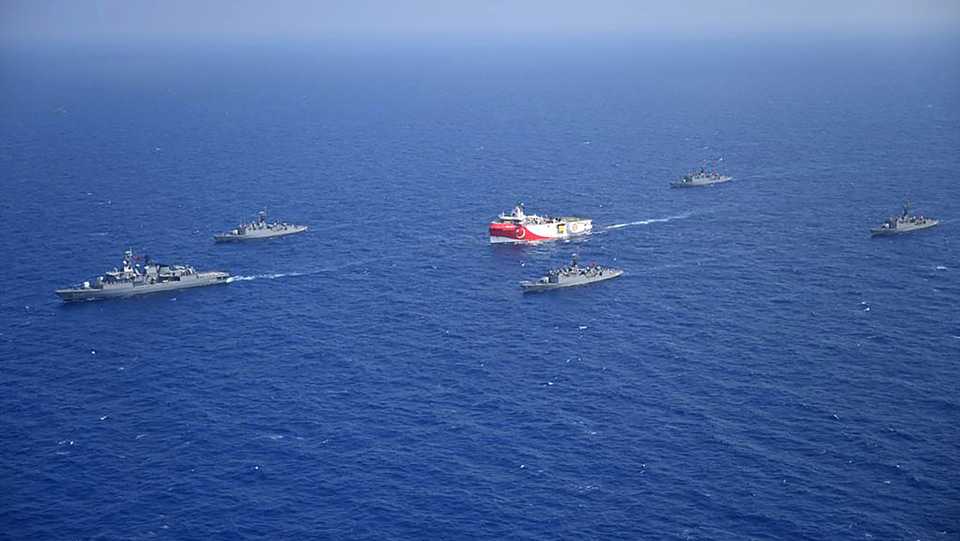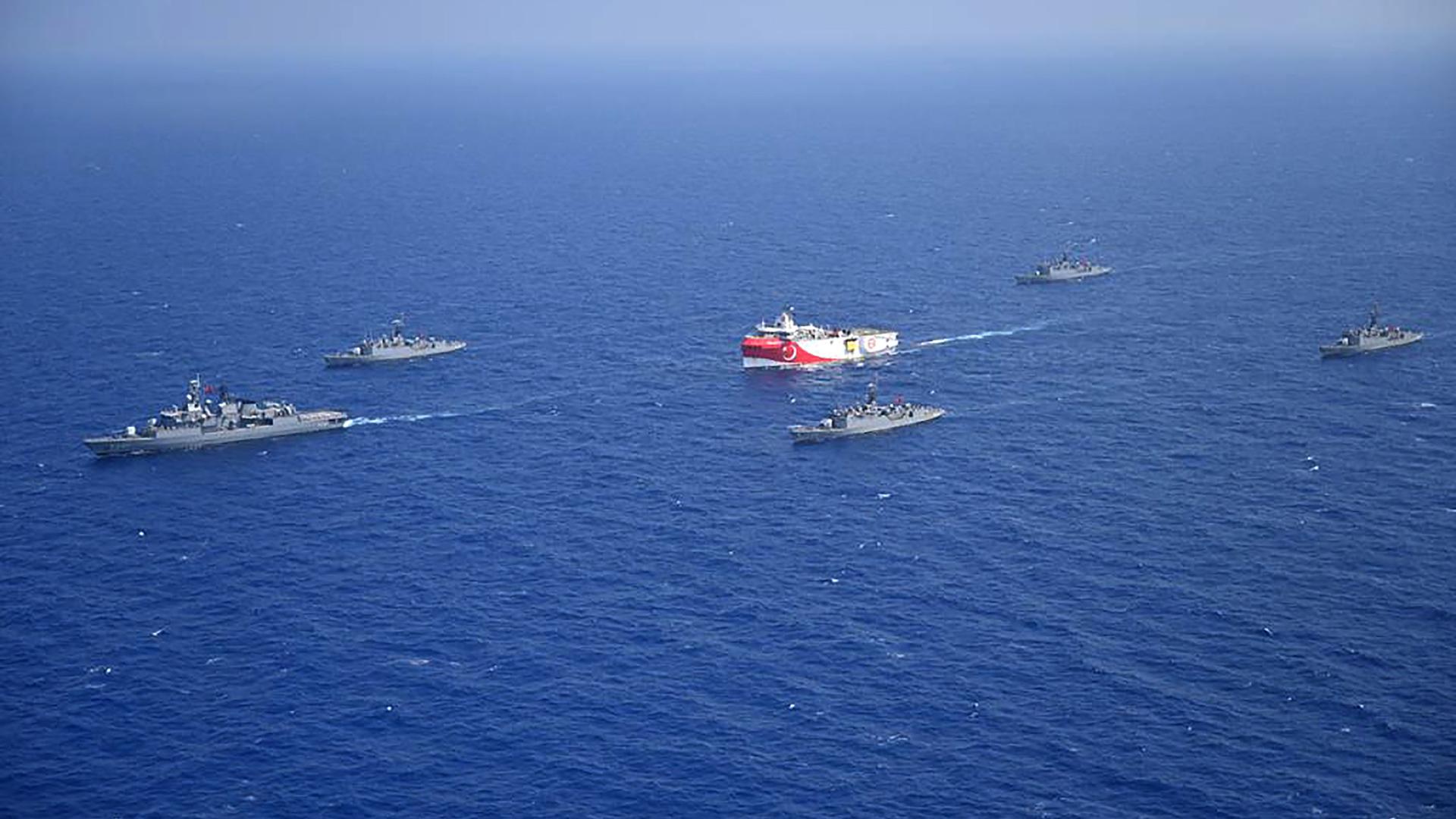
Turkey is not giving up its rights in the eastern Mediterranean as its research vessel returned to the shore, the Turkish defence minister has said.
Greece should put aside “provocative behaviour” that raises tension in the region, Hulusi Akar said in an interview on Sunday with Anadolu Agency in the Mediterranean resort city of Antalya.
Greece’s violation of international treaties by arming 18 Aegean islands serves only to escalate tensions and sabotage dialogue, he added.
Underlining the importance of diplomacy in resolving disputes, Akar said Turkey is always on the side of dialogue and negotiation.
However, he added that the country would continue to defend its rights in the region.
Akar also criticised French President Emmanuel Macron’s attitude towards the dispute in the region, calling on Greeks not to fall for initiatives he is leading to “save himself.”
Defusing tensions
Earlier, Akar reiterated that Turkey supports peace and dialogue “if our wishes and demands are fulfilled” on the issue of drilling rights in the eastern Mediterranean.
He also added that “we are for good neighbourliness, friendship, dialogue and a political solution. For this, we are doing our best in Turkey.”
Akar made the remarks as the Turkish research vessel the Oruc Reis returned close to the southern Turkish port of Antalya for the first time in more than a month after Turkey announced in July that it was dispatching a vessel to work in waters that Greece claims are its exclusive jurisdiction.
The Greek government welcomed the move.
Greek Prime Minister Kyriakos Mitsotakis said he was ready to try to restart long-stalled talks, signalling that the two countries could be inching toward negotiations after weeks of tensions in the region.
“This is a positive first step,” Mitsotakis told reporters in the northern Greek city of Thessaloniki.
“If we see signs of deescalation in practice … I will be the first to sit at the negotiating table.”
The ship returned to Antalya after its Navtex, or international maritime safety advisory, for the waters between Turkey, Cyprus and the Greek island of Crete it had been in since August 10 expired.
Turkey on side of dialogue
Tensions in the region have been high since Turkey resumed energy exploration in the eastern Mediterranean last month, after Greece and Egypt signed a controversial maritime delimitation deal, spurning Ankara’s goodwill gesture of halting a previous search.
Previously, Turkey has repeatedly extended its research vessel Oruc Reis’ energy exploration in an area within its continental shelf, with the latest announced on August 31, this time until September 12.
Turkey has consistently opposed Greece’s efforts to declare an exclusive economic zone based on small islands near Turkish shores, violating the interests of Turkey, the country with the longest coastline in the Mediterranean.
Like I said b4.
— Dr. Ali Bakeer (@AliBakeer) September 10, 2020
Non-genuine members of E. Med such as (#France & #UAE) hv no interest in de-escalating the sit. btwn #Turkey & #Greece cz their actual interests are solely based on escalating the crisis.
Their reckless & dangerous behaviour should be stopped b4 it’s 2 late. https://t.co/heh2d7XcT5
READ MORE: What is at stake in the eastern Mediterranean?
Ankara has also said energy resources near the island of Cyprus must be shared fairly between the Turkish Republic of Northern Cyprus and the Greek Cypriot administration.
Amid tensions over the Mediterranean territory and energy exploration, Turkey has repeatedly stressed its willingness to enter negotiations without preconditions, in contrast to Greece’s refusal in recent weeks to enter dialogue through both NATO or the EU.
NATO intervened, organising talks between the two countries’ militaries to prevent a potential armed conflict.
READ MORE: Erdogan warns Macron not to ‘mess with Turkey’










Discussion about this post